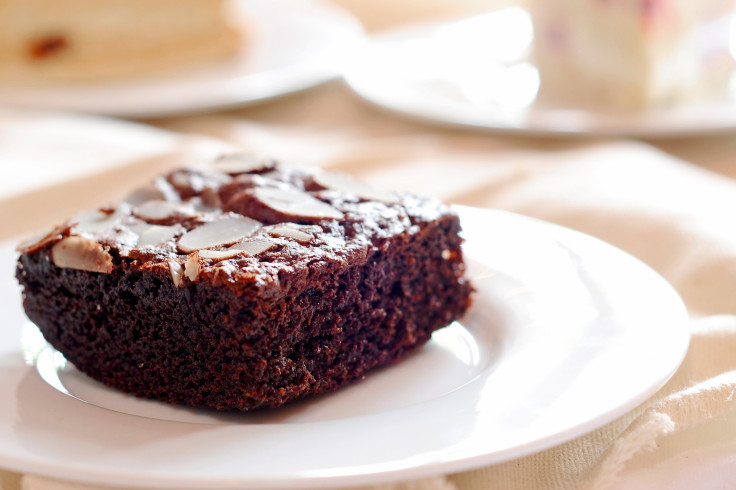Lose Weight By Celebrating Food, Not Feeling Guilty About It: Psychologists Say Guilt Leads To More Weight Gain

Perhaps it’s the way that you perceive food that dictates how you lose weight. Guilt can motivate, but it can also undermine diets: after eating chocolate or a big piece of cake, guilt may spur you to continue your weight loss efforts, or it may trigger surrender.
Researchers Dr. Roeline Kuijer and Jessica Boyce wanted to find out whether eating-induced guilt was an incentive to improve weight-loss efforts, or if it undermined the person’s desire to continue their diet. Their study found that if a person associated chomping down chocolate cake with guilt, they actually ended up having a harder time moving forward with weight loss. “This study did not find any evidence for adaptive or motivational properties of guilt,” the researchers wrote in their abstract.
The study first examined what people associated with eating chocolate cake: either guilt or “celebration.” The researchers wanted to measure “differences in attitudes, perceived behavioral control, and intentions in relation to healthy eating." Secondly, they wanted to rate levels of weight gain or loss in the participants over a period of 18 months. Some 300 participants, aged 18 to 86, were measured and questioned about whether eating cake was enjoyable or made them feel guilty; 27 percent associated it with guilt, and 73 percent with celebration.
People who felt guilty reported a sense of lost control over their eating because they indulged in cake; this led them to drop their weight-loss goals. The guilty eaters did not report any more positive attitudes or stronger intentions to eat healthy, and were not as successful at maintaining their weight. “Enjoyment of food is essential to people’s well-being,” the researchers said in their report, according to the Daily Mail. “This study shows those who consume a ‘forbidden food’ with celebration and view it as a treat do better in terms of weight management. Enjoyment of food should receive more attention than it has in the past.”
Psychologists have differing opinions on guilt’s purpose. Some say it works as approach motivation, while others believe it doesn’t have much of a motivating purpose and could even be linked to depression. Several studies have also identified guilt as an aspect of many eating disorders. A 1991 study found that women with eating disorders tend to have more shame and guilt in relation to eating than women who eat normally.
“When you feel like you should be holding a pitchfork while eating your meal, you are not enjoying it,” Rebecca Scritchfield writes on U.S. News. “You feel awful, like you’re being bad, and you’ll never reach your health goals … That’s a lot of baggage that is not only unnecessary, it’s misguided … In fact, struggling with guilt or anxiety over foods is less healthy than learning how to let yourself enjoy them in moderation.”
Source: Kuijer R, Boyce J. Chocolate Cake: Guilt or Celebration? Associations with Healthy Eating Attitudes, Perceived Behavioural Control, Intentions and Weight-loss. Appetite. 2013.



























